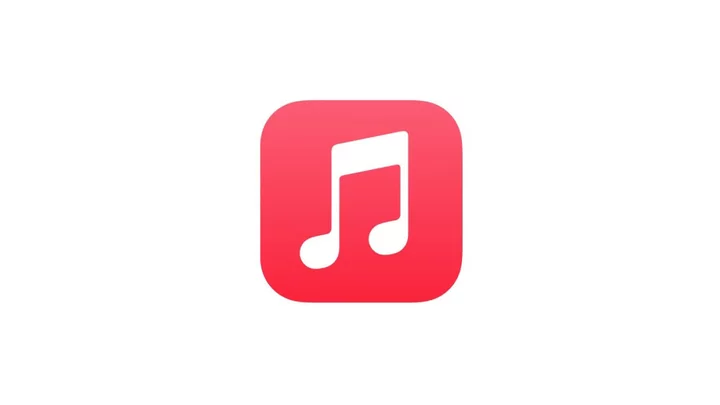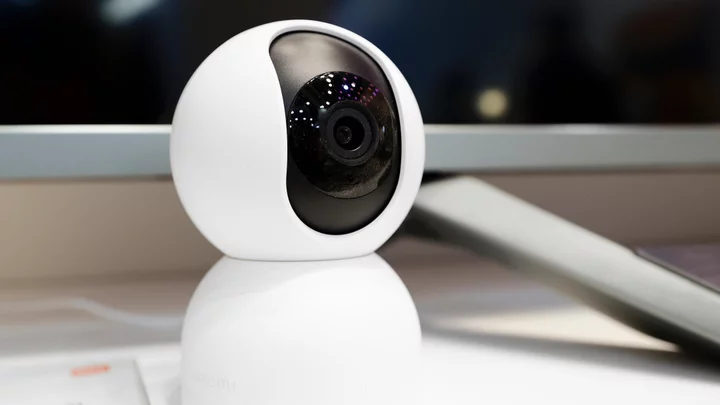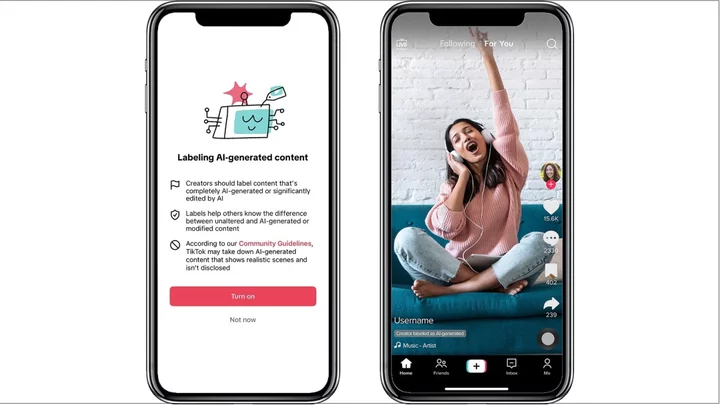Apple Music, Cupertino's streaming music service, continues to shine. It has a massive catalog of more than 100 million songs, the curated Apple Music 1 radio station, Siri compatibility, video content, lyrics, a 24/7 music video channel, and support for numerous devices, including the Apple Watch. Apple makes the service even better by offering lossless audio and Dolby Atmos support at no additional cost. For its entertaining, ever-evolving features, Apple Music stands alongside LiveOne, Sirius XM Internet Radio, Spotify, and Tidal as an Editors' Choice winner for streaming music services.
How Much Does Apple Music Cost?
Apple Music is a streaming music service that brings more than 100 million songs and a strong music video catalog to iOS, macOS, tvOS, watchOS, Android, CarPlay, HomePod, Windows, Chrome OS, Amazon Echo, Sonos, and web browsers. So, if you own a consumer tech device, there's a good chance that you can use it to stream Apple Music.
(Credit: Apple)Signing up is easy. Apple Music offers a one-month trial, which is a decent amount of time to try before you subscribe (you'll still need to supply credit or debit card info, though). After that, you must sign up for a subscription plan to continue using the service. The $10.99 per month Single Membership and the $16.99 Family Membership (for up to six people using iCloud Family Sharing) grant ad-free music listening, ad-free video watching, offline listening, and access to Apple Music radio (Apple's three human-curated, 24/7 channels).
We like seeing Apple Music and other streaming music services adopt family plans, which is something that LiveOne still lacks. However, LiveOne makes up for it by offering a free tier, which Apple Music lacks. Amazon Music Unlimited also has a Family Plan, one that gives six people ad-free, on-demand music listening for $15.99 per month.
The $4.99 Apple Music Voice subscription tier, which brought the service's expansive catalog to Siri-supported devices, was discontinued in November 2023. This tier lacked lossless audio, spatial audio, and other key features, but made up for it with a fantastic price. Amazon Music Unlimited still offers a Single Device plan for $4.99, so that's the way to go if you want a robust musical service on an Amazon Echo or Fire TV device.
If you're a college student who's enrolled in an eligible college or university, you can subscribe to Apple Music for a wallet-friendly $5.99 per month. Students can take advantage of the discount for up to four years. Spotify and Tidal offer similar student deals, but at $4.99 per month. However, you don't want to spend a dime on music. Check out the best free online streaming music services for the platforms that offer no-cost tiers.
Putting the Needle to the Groove
Apple Music's layout features large, eye-catching icons that invite you to explore the service, be it via a browser or an app. Honestly, that's something that you're likely to do anyway, as the interface features a menu structure that helps you quickly find content. Library, Playlists, Artists, Albums, and Songs are all prominent and easy to navigate.
When you sign into the service for the first time, you'll be asked to pick your favorite music genres and a few sample acts. This populates the Listen Now page, giving you top songs from those artists and genres, plus tailormade radio stations. Alternatively, you can go to the Browse section to peruse Apple's featured playlists and albums. It's here that the service highlights some of its Spatial Audio tracks (with support for Dolby Atmos), which is useful if you have the company's AirPods Pro or another surround-sound headset. Finally, the Radio tab includes Apple's three radio stations—Music 1, Music Hits, and Music Country—alongside the additional content available on the service. This includes third-party radio stations, podcast-style radio shows (like Elton John's Rocket Hour and Strombo), and artist video interviews.
Digging Into the Apple Music Library
Apple Music features a vast selection of albums and songs, including Dr. Dre's The Chronic, as well as tracks from Taylor Swift and other pop acts. We found many Prince albums, too, including 1999, Purple Rain, and Sign 'O' the Times. You can also listen to music channels dedicated to certain themes, such as Hip-Hop Workout Anthems and Disney Princess Radio. Looking into K-pop, we found that certain albums also include music videos for related singles. Like YouTube Music, Apple Music lets you jump from listening to EXO's Don't Fight the Feeling audio stream to watching the music video with a single click.
There are plenty of comedy tracks, too, for those times when you're in the mood to yuck it up. Maria Bamford, Kevin Hart, Eddie Murphy, Amy Schumer, Daniel Tosh, and Katt Williams are just a few of the notable comedians who have standup work on Apple Music.
Meanwhile, Apple's flagship radio station, Apple Music, features tracks curated by DJ Zane Lowe, along with artist interviews. In celebration of Apple Music's monumental 100-million-song milestone, the Apple Music Today radio show has been added to the service's program list. This show highlights one song from Apple's catalog per day, and delves into the track's history. It's a fascinating listen, especially if you're a fan of Tidal's editorial coverage.
The service still segregates music from podcasts, unlike Spotify. If you want to listen to the best podcasts, Apple Podcasts is your destination. We understand why they keep the apps separate, but the option to jump from music listening to podcasts within the same app is great on Spotify.
If you dig music videos, you'll be happy to know that Apple Music has a dedicated section for that medium. The videos are tailored to your preferences, too.
Apple Music Audio Quality and Siri
Apple Music has finally caught up to top competitors with the addition of non-compressed, lossless audio. Lossless music streams top out at 24-bit/48KHz, while hi-res, lossless streams top out at 24-bit/192KHz. With hi-res, lossless audio, Apple Music now matches Amazon Music Unlimited, Qobuz, and Tidal's hi-res audio offerings. The streams support Spatial Audio with support for the excellent, immersive Dolby Atmos.
(Credit: Apple)Apple Music supports a range of devices, but lossless audio is currently available only on iPhone, iPad, Mac, Apple TV 4K, and Android devices. The web player doesn't support lossless audio, and iTunes hasn't been updated for it, either. As a result, Windows PC users can't access lossless audio at all. In addition, only a fraction of the Apple Music catalog supports hi-res lossless streams.
Still, we welcome this enhanced sound quality. We loaded up Balencies by Chika—which is not only lossless, but also an Apple Digital Master for enhanced quality—and loved the clear separation between the choir samples and that bumpin' bass line. We even found the Castlevania Dracula X video game soundtrack in lossless quality; every instrument sounded great, from Bloody Tears' pipe organ to Vampire Killer's smooth violins.
What would an Apple service be if it didn't encourage you to use other Apple services and products? You can use Siri to tell Apple Music to play specific songs or ask for recommendations, like The Top Songs of the 80s. Apple Watch owners can sync music to their devices, and keep listening even when the timepiece isn't paired to an iPhone. Apple Music supports lyrics (when they are available), so you can sing along to a song, even if you don't know the words.
Karaoke on Apple Music
While many Apple Music songs feature real-time lyrics, Apple has gone one step further by introducing a new karaoke feature for subscribers. Called Apple Music Sing, it is available on supported iPhones, iPads, and Apple TVs. Simply open the Apple Music app and play a song. Tap the quote icon at the bottom left of the screen, then use the microphone icon above the music controls to turn the vocal volume up or down.
(Credit: Apple)This feature does a few interesting things to simplify the karaoke experience. First, lyrics animate in real time to make singing along easier. Background vocals are left intact, with these lyrics animated independently and in a smaller font under the main vocal lyrics. For songs with multiple vocalists, lyrics are presented on opposite sides of the screen to make duets and multi-singer tracks easy to follow.
This feature is not available with all songs on Apple Music. That said, Apple has launched it with more than 50 dedicated companion playlists, giving you plenty of music to sing to right from the jump.
As mentioned, Apple Music Sing can only be used with compatible devices. For iPhones, these are the iPhone SE (3rd generation) and the iPhone 11 and later when using iOS 16.2 or later. For iPads, these include the iPad Pro 11-inch (3rd generation and later), iPad Air (4th generation or later), iPad mini (6th generation), or iPad (9th generation and later), with iPadOS 16.2 or later. Apple TV 4K (3rd generation) is also supported.
Apple Music's Discovery
In the streaming music world, having access to all your favorite tunes and ditties is integral. But the ability to discover new music is just as important. Services like Pandora and Spotify have algorithms, or even dedicated stations that recommend music you may like, based on either preselected categories or your own listening preferences.
Apple Music throws its own algorithmic edge into the bag with Discovery Station, a playlist that highlights music similar to what you’re already listening to in your library. The twist is that Discovery Station only plays music that you have not yet heard, making it a fine gateway station if you’re itching for something new, yet familiar. You can find this feature in Stations for You, in Apple Music’s Listen Now section.
During testing, we found plenty of great musical recommendations that we jelled with, though we noticed a song or two from our own library slip in at times. Still, it’s a great addition to the platform, and very similar to Spotify’s Discovery Weekly option.
How Is Apple Music TV?
Apple Music has proven itself a solid music streaming service since its debut, but it lacked a truly killer feature to help it stand out in a crowded field. That's changed with the Apple Music TV, a 24/7, ad-free music video stream that recalls MTV's heyday (minus the VJs).
(Credit: Apple)Found in the Apple Music and Apple TV apps (it's not a part of Apple TV+), Apple Music TV focuses on popular, youth-centric tunes.
In our tests, the service served up videos by Justin Bieber, Dua Lipa, and Alicia Keys. Well, those are the artists we recognized; sadly, Apple Music TV lacks metadata that informs you of what's playing. So, if you happen upon a music video in the middle of its broadcast, there's no way to identify the song or performer. That's a major music discovery oversight.
Apple Music TV isn't just wall-to-wall videos. The service also breaks things up with artist interviews, live performances, and themed artist takeovers.
Apple Music Is a Sound Garden
Apple Music offers more than 100 million tracks, excellent video content, and cool, human-curated radio stations, among other highlights. The service now costs slightly more than many of its competitors, which is the biggest knock against it. But we have no doubt that music fans will find a lot to love, and for that, Apple Music earns our Editors' Choice award for streaming music services.
(Mike Williams contributed to this review.)









